Smart Glasses: Are They Ready to Replace Smartphones?
25 November 2024
Technology has a knack for evolving faster than we can keep up with it. Just when we thought that smartphones were the ultimate tech accessory, a new player entered the scene: smart glasses. These futuristic-looking devices promise a world where we no longer need to clutch our phones to stay connected, entertained, or informed. But are they truly ready to replace smartphones, or are we still a long way off from that reality?
In this article, we’ll explore the current state of smart glasses, their potential as a smartphone replacement, and whether they’re worth the hype. Let’s dive in.
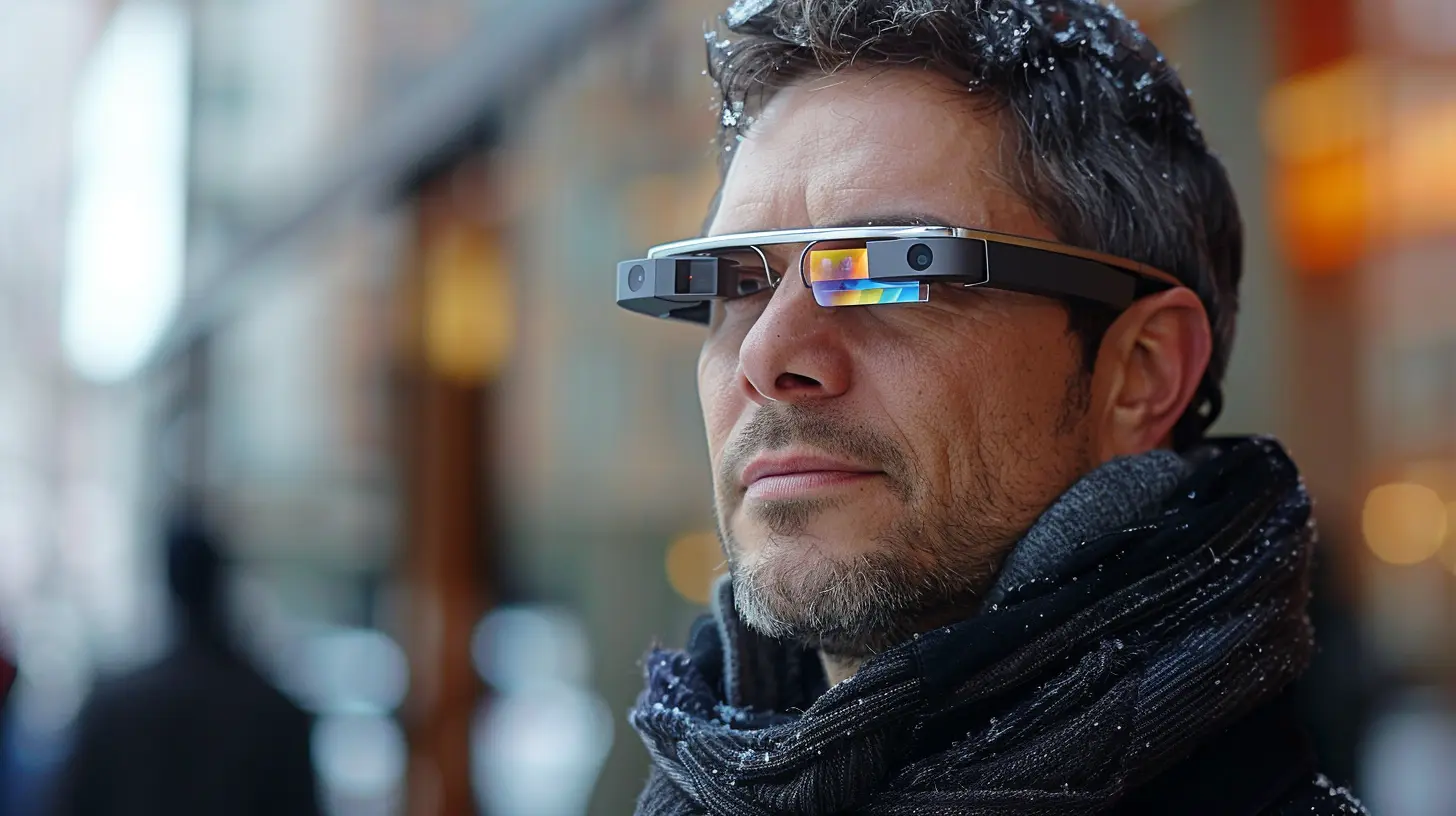
What Exactly Are Smart Glasses?
If you're unfamiliar with smart glasses, think of them as regular eyewear with a dash of tech magic sprinkled in. They’re essentially wearable computers that integrate a miniature display into the lenses, giving you real-time access to information without needing to pull out your phone. Some smart glasses also feature built-in cameras, microphones, and speakers for hands-free communication and recording.Imagine having notifications pop up right in front of your eyes, or being able to take a photo simply by blinking or tapping a button on the frame. Sounds pretty sci-fi, right? Well, that’s what smart glasses aim to deliver.
A Brief History of Smart Glasses
While they seem like a relatively new invention, the concept of smart glasses has been around for quite some time. One of the earliest attempts was Google Glass, launched in 2013. At the time, Google Glass was seen as revolutionary, but it stumbled over issues like privacy concerns, battery life, and an awkward design. Fast forward to today, and tech companies like Facebook (Meta), Apple, and Amazon are all dipping their toes into the smart glasses pool, trying to refine the concept and make it more user-friendly.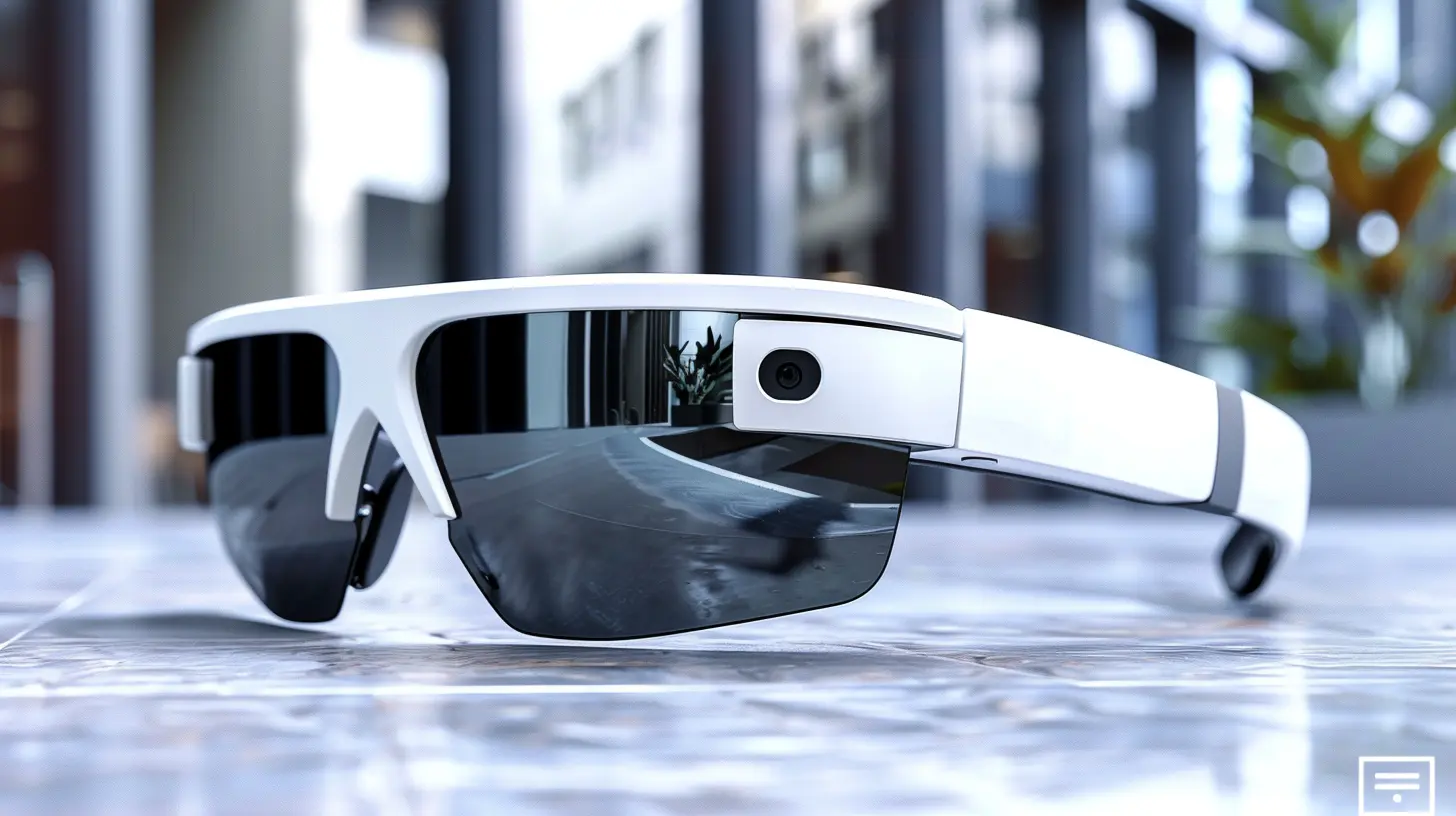
The Smartphone – Why Fix What Isn’t Broken?
Before we start comparing, let's give credit where credit is due. Smartphones have become an essential part of our daily lives. They’re our alarm clocks, calendars, cameras, and personal assistants all rolled into one. They’ve revolutionized communication, entertainment, and how we access information. It’s hard to imagine life without them, right?So, what would it take for smart glasses to dethrone the smartphone? Let’s break it down.
Pros of Smartphones
- Versatility: Smartphones are multi-functional. From browsing the web to editing documents, there’s not much they can't do.- App Ecosystem: With millions of apps available, smartphones offer an endless range of possibilities for customization, productivity, and entertainment.
- Portability: While they’re not wearable like smart glasses, smartphones are still compact enough to fit in your pocket or bag.
- Established Infrastructure: Smartphones have been around long enough that there’s a well-established ecosystem of apps, accessories, and services built around them.
With all those benefits, why on earth would we need to replace them?

Smart Glasses – The New Kid on the Block
Smart glasses, on the other hand, are still in their infancy, but they offer some tantalizing possibilities that could potentially make our lives even more convenient. Let’s look at some of the reasons why smart glasses could be the future.Hands-Free Convenience
Imagine walking down the street, getting directions, checking messages, or taking a quick photo—all without ever touching a screen. Smart glasses offer a hands-free experience that smartphones simply can’t match. You could be jogging, cooking, or even driving, all while staying connected without having to glance down at your phone.Augmented Reality (AR) Integration
This is where smart glasses really have the potential to shine. Augmented Reality (AR) can overlay digital information onto the real world, giving you an immersive experience that a smartphone screen can’t replicate. Instead of looking down at a map on your phone, AR could display turn-by-turn directions right in your field of vision. Shopping? Picture price tags floating above items as you walk through a store. The possibilities are endless!Discreet Notifications
Let’s be honest, it can be a little rude to pull out your phone during a conversation or a meeting to check a notification. Smart glasses would allow you to discreetly check notifications without making a scene. A quick glance at a subtle display in the corner of your glasses, and you're back in the moment.Voice Commands and AI Integration
With built-in microphones and speakers, smart glasses could take voice commands to the next level. Imagine having an AI assistant like Siri or Alexa integrated into your glasses. Need to send a text? Simply ask. Want to know the weather? Just say the word. The combination of hands-free control and voice assistance could provide a seamless, natural interaction that makes smartphones seem clunky in comparison.
The Challenges of Smart Glasses
As promising as smart glasses sound, they’re not without their drawbacks. Let’s take a closer look at some of the challenges these devices face before they can replace smartphones.Battery Life
One of the biggest hurdles smart glasses face is battery life. With all the tech packed into such a small device—displays, cameras, microphones, and more—squeezing out enough battery life to last a full day is a major challenge. The last thing anyone wants is to be stuck with dead glasses halfway through the day.Display Limitations
While tiny displays are convenient for quick notifications, they’re not ideal for consuming media or reading long texts. Watching a YouTube video or browsing social media on a pair of smart glasses just doesn’t sound as enjoyable as doing so on a large smartphone screen. Until the display technology improves, smart glasses will likely remain a supplement to smartphones, rather than a full replacement.Privacy Concerns
Remember when Google Glass first came out? One of the main concerns was privacy. The idea of having a camera on your face at all times made people uncomfortable. While technology has evolved since then, privacy concerns still linger. Will people feel uneasy knowing that someone’s glasses could be recording them at any moment? Tech companies will need to address these worries before smart glasses become widely accepted.Price
As with any new technology, smart glasses aren’t cheap. Early models have been priced well beyond what most people are willing to spend. While prices will likely come down as the technology matures, right now, smart glasses remain a luxury item rather than a mainstream gadget.Are Smart Glasses the Future or Just a Fad?
So, are smart glasses ready to replace smartphones? Not quite yet. There’s no doubt that they offer some incredible features and potential, but they still have a way to go before they become a true smartphone replacement.For now, smart glasses seem better suited as a complementary device rather than a complete substitute. Much like how smartwatches didn’t replace smartphones but added extra functionality, smart glasses have the potential to work alongside our phones, making our lives more convenient and connected in new ways.
In the future, as technology improves, we might see smart glasses evolve into a more viable alternative to smartphones. But for now, it looks like our trusty smartphones aren’t going anywhere.
The Road Ahead: What Needs to Happen?
For smart glasses to truly replace smartphones, several key developments need to occur:- Improved Battery Life: Battery technology will need to improve significantly to power smart glasses for an entire day without sacrificing functionality.
- Better Displays: Display technology needs to evolve to offer a more immersive, high-quality visual experience without being intrusive or straining on the eyes.
- Affordability: Prices need to come down to make smart glasses accessible to the average consumer.
- Privacy Solutions: Tech companies will need to address privacy concerns, ensuring that smart glasses don’t become tools for surveillance or invasion of personal space.
- App Ecosystem Growth: Just like smartphones, smart glasses will need a robust app ecosystem to offer a wide range of functions and services.
These advancements may take years, but if they happen, there’s no reason why smart glasses couldn’t become the next big thing in the tech world.
Conclusion
For now, smart glasses remain a fascinating glimpse into the future of tech. They offer exciting possibilities, from augmented reality to hands-free convenience, but they’re not yet ready to replace smartphones. With improvements in battery life, display technology, and pricing, smart glasses could eventually become the go-to device for staying connected and informed. But for the time being, our smartphones remain the kings of the tech world.Who knows? In a few years, we might all be walking around with futuristic glasses on our faces, leaving our smartphones at home. But until then, it’s safe to say that the smartphone reigns supreme.
all images in this post were generated using AI tools
Category:
Wearable TechAuthor:

John Peterson
Discussion
rate this article
19 comments
Talis Bowman
Smart glasses show promise with hands-free functionality and augmented reality. However, for widespread adoption, they must overcome challenges in usability, battery life, and social acceptance.
April 5, 2025 at 8:38 PM

John Peterson
I agree—while smart glasses offer exciting potential, addressing usability, battery life, and social acceptance is crucial for their mainstream adoption.
Tracie McNab
Smart glasses replacing smartphones? Please! Until they can flawlessly handle my selfies, stream my shows, and keep my social media game strong—I'm not trading in my beloved device for a gadget that screams “look at me!”
January 31, 2025 at 12:01 PM

John Peterson
Indeed, while smart glasses have potential, they still have a way to go before they can match smartphones in functionality and user experience. Your concerns are valid!
Honor Monroe
Smart glasses hold immense potential to transform our daily interactions with technology, but they're not yet ready to supplant smartphones. While advancements are impressive, practical usability, battery life, and app ecosystems must improve before they can genuinely compete. Until then, smartphones remain indispensable.
January 23, 2025 at 7:18 PM

John Peterson
You’ve highlighted key points! While smart glasses show promise, significant improvements in usability and ecosystem are necessary before they can truly replace smartphones.
Kristen Peterson
This article offers great insights into the potential of smart glasses. While they hold promise, I believe smartphones will remain essential for some time. Excited to see the evolution!
January 18, 2025 at 5:28 AM

John Peterson
Thank you for your thoughts! It's true that while smart glasses have great potential, smartphones will likely continue to play a crucial role for the foreseeable future. Exciting times ahead!
Sawyer O'Neal
Exciting tech evolution—can’t wait to see!
January 11, 2025 at 1:00 PM

John Peterson
Thank you! Exciting times ahead for tech innovation!
Sage McCullough
Exciting future ahead for connectivity!
January 5, 2025 at 7:21 PM

John Peterson
Absolutely! Smart glasses have the potential to revolutionize how we connect and interact with the world around us.
Adrian Underwood
This article offers an insightful examination of smart glasses and their potential to replace smartphones. While the technology is promising, user adoption will depend on factors like functionality, comfort, and practicality. It's an exciting time for innovation, and I'm curious to see how this evolves!
January 1, 2025 at 9:10 PM

John Peterson
Thank you for your insightful comment! You're right—user adoption will hinge on comfort and practicality. It's an exciting journey ahead for smart glasses!
Damien Abbott
Smart glasses show promise with features like hands-free navigation and augmented reality overlays. However, they still face challenges in usability, battery life, and social acceptance. While advancements are ongoing, smartphones remain essential for most daily tasks, making a complete replacement unlikely for now.
December 27, 2024 at 8:54 PM

John Peterson
Thank you for your insights! While smart glasses offer exciting possibilities, their current limitations mean they won't fully replace smartphones anytime soon.
Levi McCray
Smart glasses show promise with innovative features, but they still lack the practicality and versatility of smartphones. Until user experience improves, a full replacement seems unlikely.
December 23, 2024 at 7:34 PM

John Peterson
Thank you for your insights! While smart glasses do have potential, enhancing user experience is indeed crucial for their adoption as practical alternatives to smartphones.
Carmel Murphy
While smart glasses offer exciting potential, their current limitations in functionality, usability, and social acceptance suggest they are far from ready to replace smartphones as essential everyday devices. Priorities must shift towards user-centric design.
December 17, 2024 at 1:08 PM

John Peterson
Thank you for your insightful comment! I agree that while smart glasses hold great promise, prioritizing user-centric design and addressing current limitations are crucial steps before they can truly replace smartphones in everyday life.
Morrow Matthews
Smart glasses offer potential but fall short in practicality and user experience compared to smartphones.
December 15, 2024 at 5:09 AM

John Peterson
While smart glasses indeed have potential, their practicality and user experience need significant improvement before they can effectively replace smartphones.
Finley Brooks
Great insights! Smart glasses have immense potential to enhance our daily tech experiences. Exciting times!
December 10, 2024 at 8:13 PM

John Peterson
Thank you! I agree—smart glasses could significantly transform our interactions with technology. Exciting times indeed!
Laila West
Great article! It's fascinating to explore the potential of smart glasses, but it's essential to consider the diverse needs of users. Balancing innovation with accessibility will be key in this evolving tech landscape.
December 2, 2024 at 8:29 PM

John Peterson
Thank you! You're right—balancing innovation with accessibility is crucial for the future of smart glasses.
Monica Jacobs
Embrace innovation! Smart glasses could reshape our digital future, enhancing connectivity and convenience.
November 30, 2024 at 4:22 AM

John Peterson
Absolutely! Smart glasses hold great potential to enhance our daily interactions and redefine how we connect with technology.
Valerie Davis
Smart glasses are not just a novelty; they're the future. Smartphones have dominated long enough. With seamless integration into our lives, hands-free functionality, and augmented reality capabilities, smart glasses are poised to revolutionize how we interact with technology. It’s time for a change. Embrace it!
November 28, 2024 at 1:58 PM

John Peterson
While smart glasses offer exciting potential for integration and functionality, they still face challenges in terms of usability, privacy, and widespread adoption. Transitioning from smartphones will require overcoming these hurdles.
Vesperos Taylor
Great insights! While smart glasses show promise, I believe they still have a way to go before truly replacing smartphones. The user experience will be key in their adoption.
November 28, 2024 at 3:19 AM

John Peterson
Thank you for your thoughtful comment! I agree—user experience will be crucial for the successful adoption of smart glasses. It will be interesting to see how they evolve.
Kingston Reese
While smart glasses offer exciting features and hands-free convenience, they still lag behind smartphones in usability and functionality. A true replacement requires improved tech and broader consumer acceptance.
November 27, 2024 at 7:53 PM

John Peterson
Thank you for your insightful comment! You're right—while smart glasses have great potential, they still need advancements in technology and wider acceptance to truly compete with smartphones.
Zephyrion McNeely
Great article! Smart glasses have immense potential. It’s exciting to think about how they might enhance our daily interactions with technology.
November 27, 2024 at 11:26 AM

John Peterson
Thank you! I share your excitement about the potential of smart glasses to transform our interactions with technology.
Kairo Weber
Smart glasses: futuristic potential, but can they outsmart our trusty smartphones?
November 26, 2024 at 1:34 PM

John Peterson
Smart glasses offer exciting potential, but for now, they complement rather than replace smartphones due to their limited functionality and user experience.
MORE POSTS
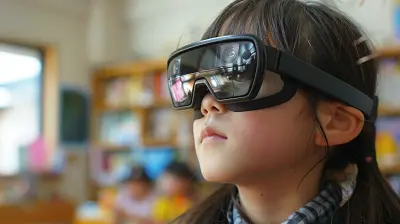
Wearable Tech in Education: Enhancing Learning Experiences
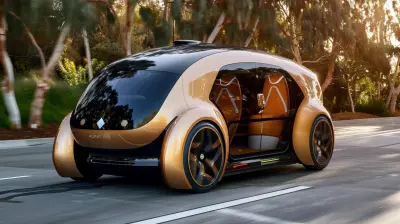
The Future of Autonomous Car Regulations: What Needs to Change?

Cyber Extortion: How Hackers Hold Data Hostage

How Wearable Cameras Are Transforming Content Creation

Which Smartwatches Offer the Best Features for Outdoor Adventures?

How to Protect Your Smart Home from Power Outages
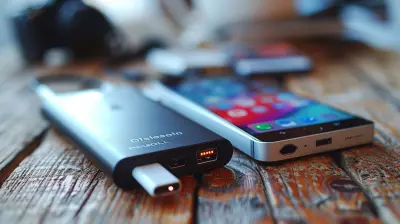
Portable Power: The Best Power Banks for Keeping Your Gadgets Charged

The Role of Robotic Process Automation in Compliance and Risk Management

How IoT Networks Are Shaping the Future of Smart Cities

How 5G Will Revolutionize IoT and Smart Homes

How to Make Your Home More Accessible with Smart Technology

The Role of Encryption in Protecting Sensitive Information